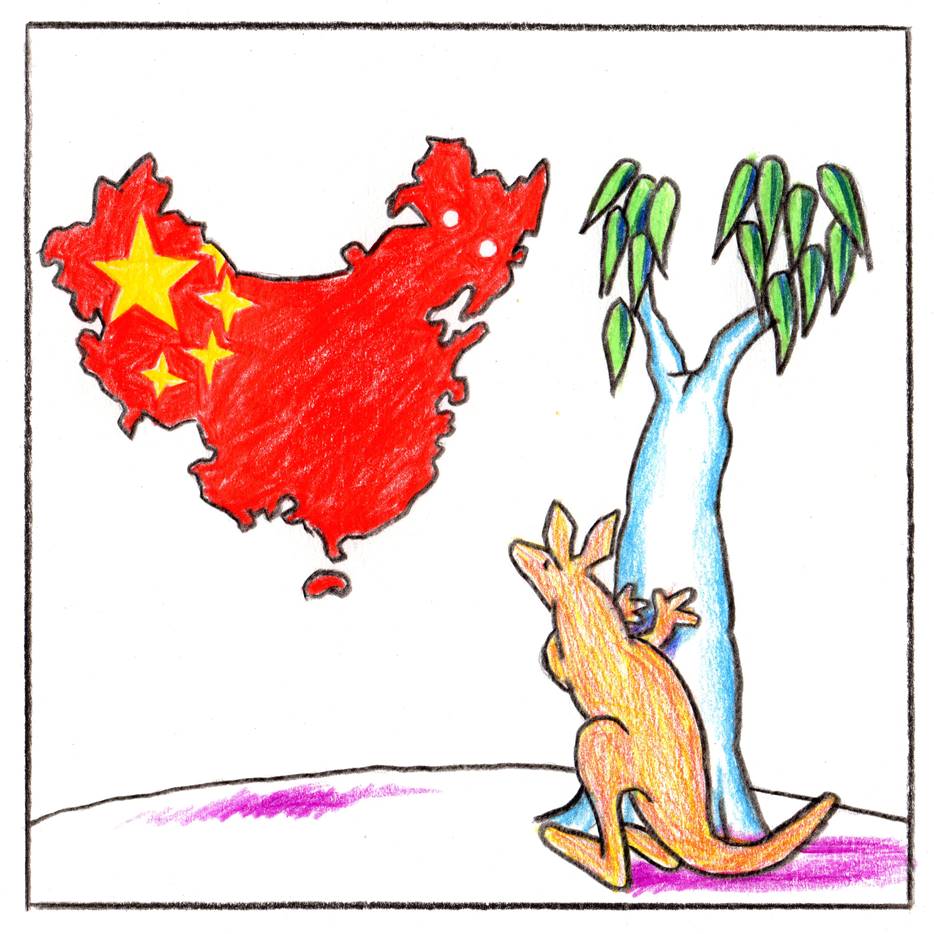Among many interesting findings in this year’s Lowy Institute Poll, one new question produced a particularly striking result given Australia’s debate over how to navigate the looming tech cold war between the US and China.
44% said “protecting Australians from foreign state intrusion” should be the government’s first priority when consdiering which foreign companies should be allowed to supply new technology for important services.
This ranked well ahead of access to the most sophisticated technology (28%) and keeping prices down for Australian consumers (28%).
This suggests the government has public support for its August 2018 decision to ban Chinese companies Huawei and ZTE Networks from taking part in the construction of the national 5G network for national security reasons; and sits with the most startling finding of this year's survey: trust in China to act responsibly in the world dropped a huge 20 points to 32%.
Australia was an outlier in the 5G decision at the time, which remains deeply unpopular with the Chinese state, even while it disavows any direct connection with both companies. But since then, Australia’s move has been followed by New Zealand, Taiwan, Japan and most enthusiastically, the US, which has gone much further; even banning US companies including chipmakers and Google from dealing with Huawei at all.
The UK, Germany and France have permitted selective involvement in 5G from Huawei under increased security measures; and it is still an open question in many other countries. China is likely to keep the pressure up as positions harden on both sides.
You couldn’t rule out xenophobic overreaction on our part, but the reputation of Chinese investment has also been indelibly tainted through its politicisation by the Chinese government.
The focus on national security priorities when it comes to new technology aligns with other results in the 2019 poll. Cyber attacks from other countries are seen as a critical threat by 62%, up 5 points from last year and the second highest result after climate change at 64%.
And in 2019 more Australians are concerned about foreign interference in Australian politics. 49% say foreign interference in Australian politics is a critical threat to Australia’s vital interests, up 8 points from last year. This significant shift in public concern follows last year’s new legislation designed to prevent foreign interference, which earned a frosty reception in Beijing.
Chinese investment is on Australian’s minds too. The share of Australians who believe the government is allowing “too much” investment from China has steadily climbed from 50% a decade ago to 68% in 2019.
You couldn’t rule out xenophobic overreaction on our part, but the reputation of Chinese investment has also been indelibly tainted through its politicisation by the Chinese government. China has weaponised tourism against South Korea; buying power against Norway; and obliquely threatened Australia over the flows of Chinese students, coal and wine exports; all following the respective countries’ political decisions Beijing did not like. Politically neutral investment makes Belgium and Japan - Australia’s third and fourth largest sources of FDI, well ahead of China - uncontroversial.
These results match with a general souring on China in the poll, where China’s score on the annual feelings thermometer dropped 9 points to 49 degrees.
77% agree Australia should do more to resist China’s military activities in our region even if this affects our economic relationship – a similar question in 2015 saw 66% agree.
74% say Australia is too economically dependent on China.
79% agree that China’s infrastructure investment projects are part of China’s plans for regional domination; just 44% characterise those projects across Asia as “good for the region”.
Only 27% say Australia is doing enough to pressure China to improve human rights, the lowest number since the question was first asked in 2008.
It all suggests a newly assertive, increasingly autocratic China will have an uphill battle in convincing foreign publics of its goodwill, even ones like Australia that have been generally warm to China, viewing it as a key economic partner. Over the past 15 years of Lowy polling, China’s economy, culture and people have generally beeen viewed positively and China has been viewed warmly (around 58 on the poll’s feelings thermometer for years); but its system of government and human rights record have always deeply troubled Australians.
But it’s clear the economic gravitational force of China still exerts huge sway. When it comes to picking sides, the much-debated “China choice” that everyone would prefer we never have to make, between the US and China; Australians remain deeply divided.
50% said we should maintain strong relations with the US even if it might harm our relations with China; but 44% said the opposite – Australia should build stronger relations with China even if it might harm our US relationship.


